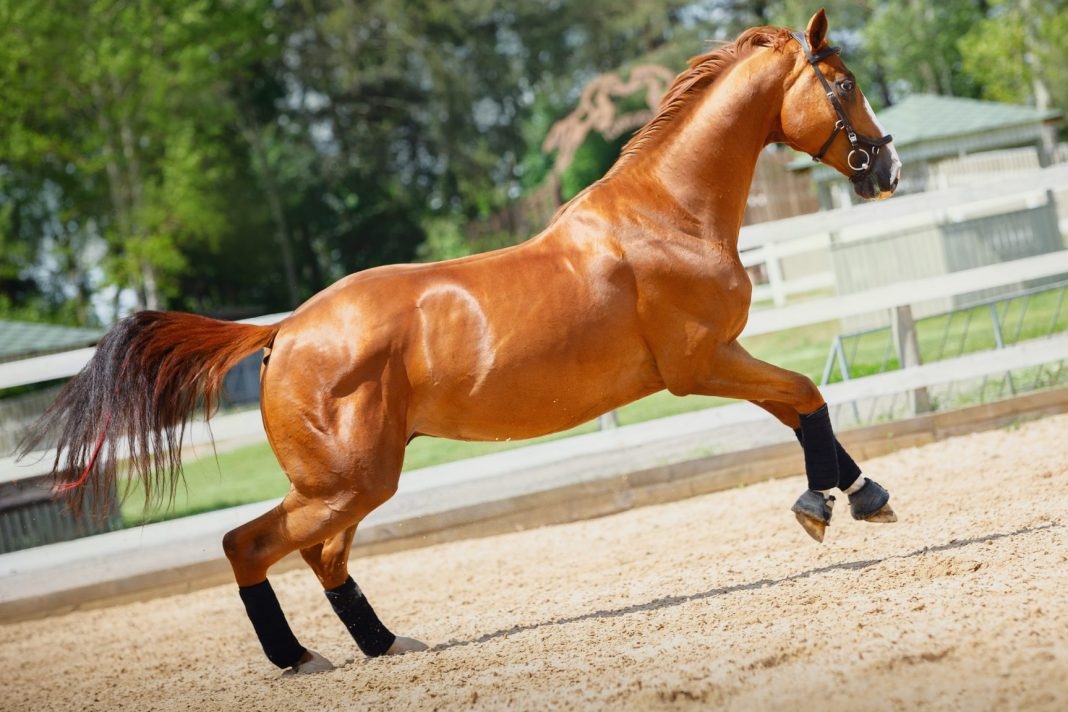Menu

What characterizes a gelding? "It is always the same", "You always know, what it is going to do" and "It would never hurt a fly". These are just some of the predujices many owners of a gelding meets in the stables. But why? The man-made gender can be difficult to define because once it was 100 % male, but now it is not. Here you will find five examples of what might describe a gelding best. In our opinion. You may know of much better ways to characterize it.
The Scythians (an ancient nomadic people of Eurasia) are thought to have been the first people to geld their horses. They valued geldings as war horses because they were quiet, lacked mating urges, were less prone to call out to other horses, were easier to keep in groups, and were less likely to fight with one another.
As an owner of a gelding you can probably recognize one or more of the four types of geldings we describe here in this article. Perhaps your horse is a mix or perhaps he is just one of them?
This type of gelding - the gentleman - describes a classical example of an early castrated horse who has not been able to develop too much testosterone. It gets along with mares and stallions. It is a friend in need when the unexperienced horse need guidance. The gentleman is just as friendly while being ridden as he is in the stable. Perhaps some believe it to be a little boring. But even so it is the most faithful horse you can wish for.
The gelding we have decided to call the nonchalant one is the type which is perhaps castrated a little late - a bit of a smartass, to be honest. Nonchalant is often described as acting cool, unconcerned or indifferent. Perhaps a little provocative. Often he seems to be friends with the mares, but in reality he has a little too much self-confidence but not much power to back it up.
What we call the bully is a mix between the gentleman and the nonchalant gelding. He is not, in general, like a stallion, but it can easily hit him once in a while. All in all, he is both loving and dependable but loves to make an unexpected stunt in the stable, in the field or while being ridden. From 100 % mild and friendly to a 100 % naughty is probably the most accurate description of the bully.
The mother's boy-gelding is probably the one that reminds you most about a mare - without being it of cause. That does not mean that he cannot be naughty occasionally but he is mostly a mix of the gentleman and an insecure bully; dependable and naughty once in a while, but very soft and easy to manage. He needs someone to look after him and make sure he is okay.
If you have a gelding, who is a good mix of the four types described above, then we do understand if the sentence: "They are just always the same - it must be great!" can be a bit exhausting at times. Because we all know that a gelding definitely is not always the same.
One day your gelding can be so elegant and cool. The next he is almost sitting on you lap just by the sight of a plastic bag.

You may also like to read: Injuries in the field: How does the mix of mares and geldings play in?
“Stop it, no more!”
How many times have you scolded your naughty gelding while the rest of the riders in the stable have listen to it? Having a gelding is like having a son; He can be very provoking, but it is actually part of making you a bit rougher in the edges.
With a gelding in your life, you definitely become better at persuasion and using a precise and determined tone.
Perhaps you also know this: There is always someone who is commenting on your geldings' sounds. "Wow, it is making so much noise when you ride in the arena!" Some people might add that it is a sign of a tense horse using itself incorrect while others believe it shows relaxation in a horse.
The funny thing is that you seldom notice it. You are used to it. Nevertheless, the sound often leads to lots of questions and why your gelding makes it. Since you are neither a vet nor a walking dictionary you seldom know what to answer. Often the answer will be that it has something to do with his castration.

If you have children or know someone who does you might recognize their desire to look and touch everything. They want to play with everything and they are just constantly doing something they are not allowed to. This is quite similar with a gelding. They often play with headcollars, blankets and different materials in the field and stable.